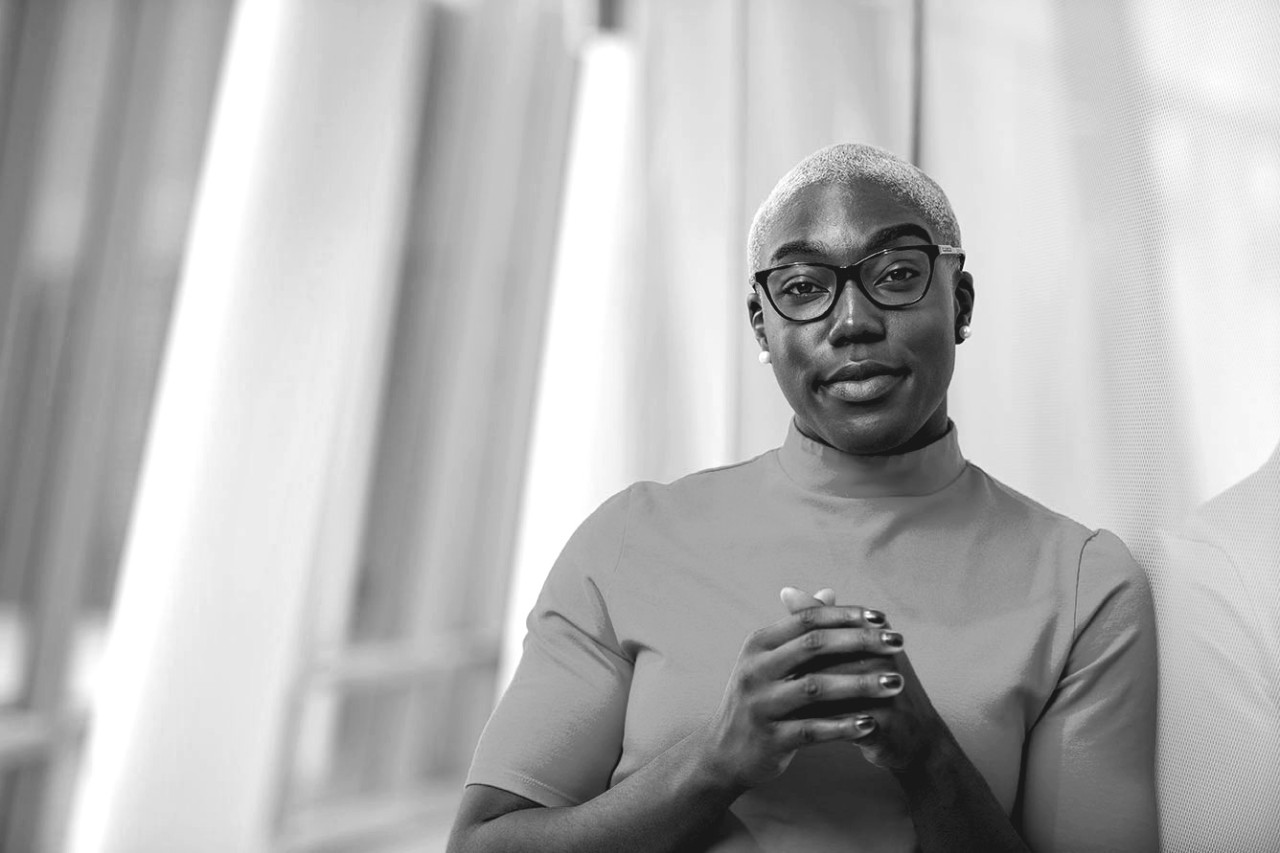
Careers of the future
Preparing for jobs that don't yet exist
Over the next five years, artificial intelligence, biotechnology, robotics and other innovations will reshape the job market. Experts predict two-thirds of students entering school today will find themselves working in jobs that haven’t even been invented yet.
That’s why college students need to do a lot more than master basic concepts. Tomorrow’s job offers will favor those with demonstrated outside-the-box, interdisciplinary and human-centered skills.
Luckily, many universities are woke to the change. Makerspaces and invention labs like University of Cincinnati’s 1819 Innovation Hub and Bearcat Launchpad, as well as initiatives such as UC’s Live Well Collaborative, provide opportunities for students to “invent the world” and pursue their entrepreneurial passion. One UC project, involving a major aircraft manufacturer, asked students to reimagine air travel. The result of the work, which envisioned travelers being whisked to their gates in automated chairs, resulted in multiple patents and potential startups. Such forward-leaning collaborations and partnerships are part of the reason Cincinnati was named among the world’s 100 most innovative universities (Reuters).
And whether or not those students go to work in the travel industry, that kind of résumé makes them hot commodities in the job market. To make sure students graduate with the skills they need to land careers they’ll want (and that employers want to fill), institutions are encouraging students to get hands-on knowledge of their fields while they’re still on campus.

Beyond the chance to learn business, engineering and design basics, students who take advantage of interdisciplinary opportunities like those offered at UC learn how to mesh their strengths with the strengths of others and pull together as a team — a soft skill that can make all the difference. Because while technical expertise will continue to advance, human skills are much more difficult for technology to imitate.
In the coming years, some of the most important skills to have will include complex problem solving, critical thinking, creativity, people management and relationship competency.
“It’s not just what you know — it’s how you meaningfully connect with others,” says Craig Vogel, associate dean at UC’s College of Design, Architecture, Art, and Planning. “Today, it’s essential for students to learn that owning a discipline is only half the solution.”
University of Cincinnati has long been ahead of the curve when it comes to giving students experiences they can use. UC invented cooperative education in 1906, and it remains on the short list of the nation’s top 20 schools for co-op and internships. Today, 1,800 national and international employers annually partner with UC to provide meaningful partnerships and co-op opportunities. And co-op positions aren’t work-study jobs. Cincinnati students earn a collective $66 million annually on co-op assignments. That’s an average of $11,000 per year — about the same cost as tuition.
Ironically, as co-op continues to evolve (Cincinnati calls it “co-op 2.0”), opportunities for real-world problem solving are expanding back into the classroom. UC’s urban futures pathway is one example, offering students a number of community-based and community-engaged projects focused on addressing the challenges of urbanization, such as poverty, justice and housing.
“Everybody is moving back to cities, and the dynamics of healthy and vital cities is a big issue around the world,” Vogel says. “Cincinnati deals with so many of the same issues, which gives us a good platform to look at it here and connect it to what’s going on elsewhere.”
As University of Cincinnati students put their lessons to work in the city where they’re going to college, they gain the breadth of knowledge to be ready for whatever’s next. No matter where — or what — it is.
Begin your Bearcats journey today.
Your Next Lives Here. Sign up Now.Related Stories
Generous gift supports renovations to UC Blue Ash Veterinary Technology Building
February 18, 2026
A longstanding relationship between Greenacres Farm in Indian Hill and the Veterinary Technology Program at UC Blue Ash College has led to a generous gift that will support a major renovation project.
What is a Trump Account and what is its impact for college savings?
February 18, 2026
Jack Miner, vice provost for enrollment management at the University of Cincinnati, joined WVXU's Cincinnati Edition to discuss a new college savings plan that was approved with passage of the One, Big, Beautiful Bill.
CCM Philharmonia presents concert + livestream on Feb. 20
February 18, 2026
Audiences can enjoy CCM Philharmonia's next concert in person or watch at home via livesteam at 7:30 p.m. on Friday, Feb. 20. Featuring alumni guest artists Rebecca Barnes, viola; and Jonathan Lee, cello; tickets for the "Midlife Crisis" concert are on sale now through the CCM Box Office. The livesteam is free to watch on CCM's website and YouTube channel.